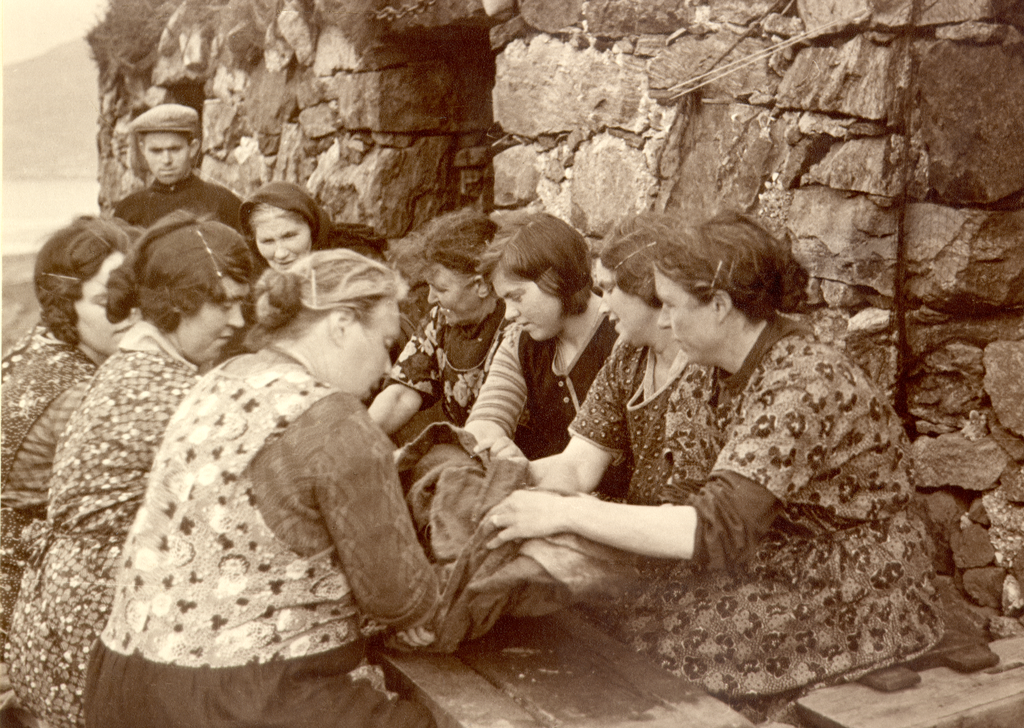Work songs were commonplace in Scotland for hundreds of years. No matter what the activity, there would be a song to accompany it and match the speed at which it was being undertaken.
These songs also served a social purpose, as they enabled people to relate specific thoughts about their communities and the subjects which were important to them. Songs sung together also generated a bond between the participants, giving a sense of attachment and of sharing experiences while toiling together.
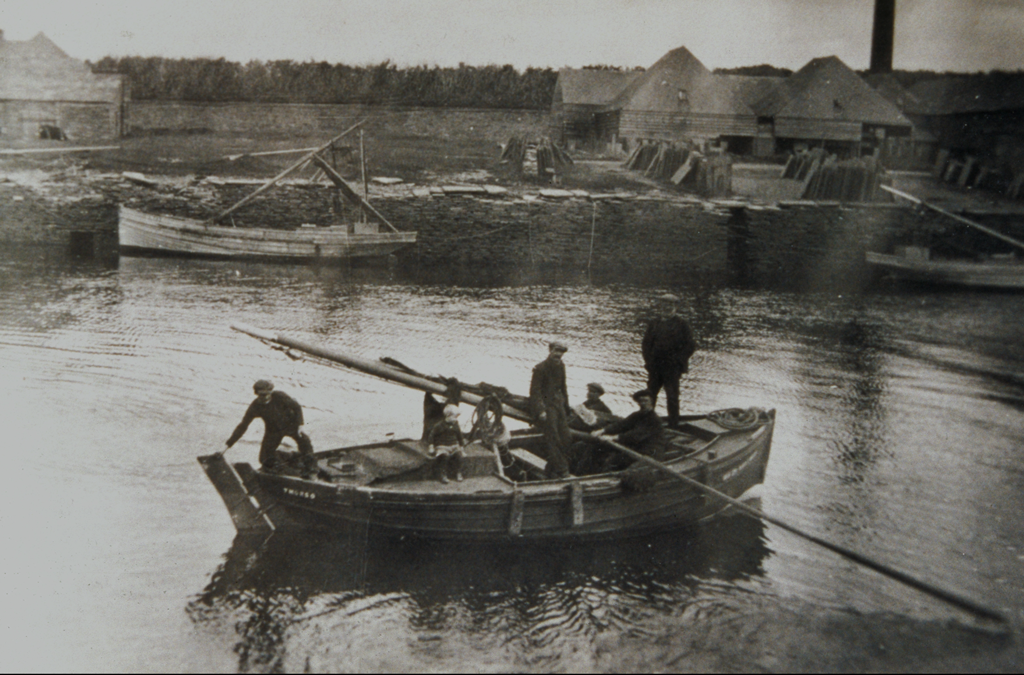
Fishing boat on Thurso River in the 1920s © Alan McIvor, licenced by Scran.
There are two main types of work songs – those which were sung while work was being done and those about work which were sung in people’s leisure time.
Here are some examples of the first type of songs, which were sung while waulking, milking cows, rowing, spinning wool, and churning butter.
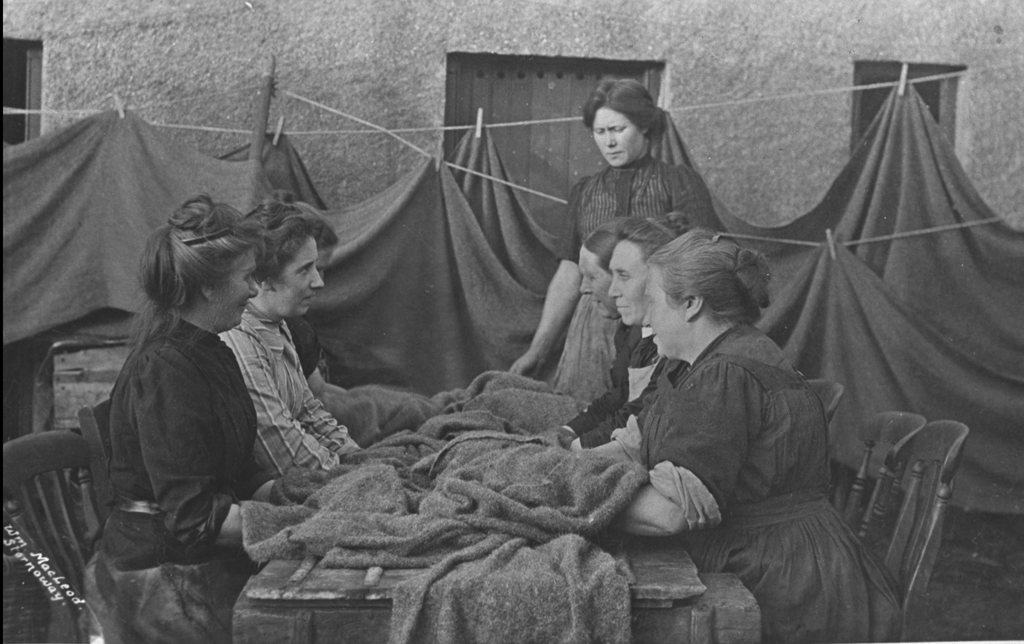
A group of women shrinking tweed by beating, 1920s © Highland Folk Museum, licenced by Scran.
Waulking Songs
Waulking was the last stage in the production of homespun tweed. During this process, the cloth would be beaten rhythmically, usually by hand, to shrink and soften it. It would generally be carried out by a group of between eight and twelve women on a hard surface, such as a table, and was known as luathadh in Gaelic.
Waulking songs would be sung throughout this laborious process in order to keep the rhythm and make the work a little easier. It was also a social occasion, with the opportunity to catch up on local news and gossip. Typically, one woman would sing the verses of the song and the others would join in on the chorus.
You can hear an example of this is in the waulking song Gura Mis’ Tha Fo Èislean, sung by Penny MacLellan of South Uist in the Western Isles from a recording made in 1949. In the first part of the song, a woman watches a female deer and her mate playing together and, unlike the woman, they are happy. In the second section, the composer wishes she could spend a week in the form of a goose, mallard or seagull.
Listen to Gura Mis’ Tha Fo Èislean on the Tobar an Dualchais website
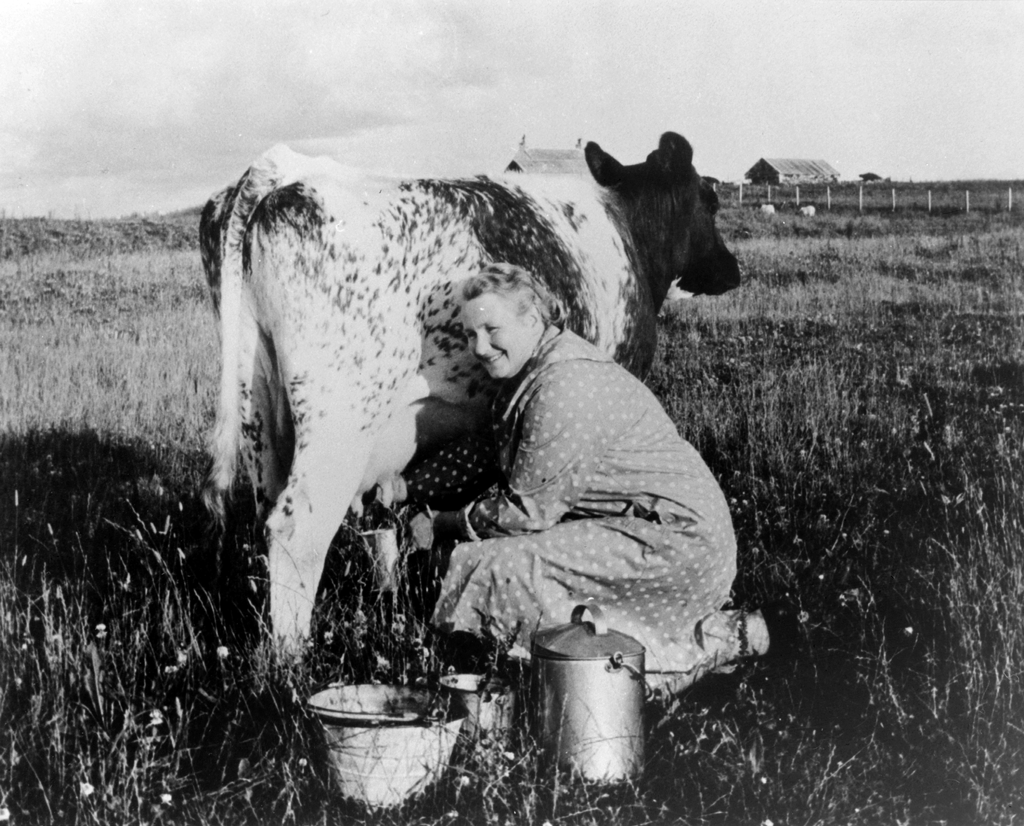
Hand-milking on North Uist, Inverness-shire in the 1950s © National Museums Scotland, licenced by Scran.
Milking Songs
Cattle played a significant role in the economic livelihood of the Highlands and one of the tasks relating to them was milking cows by hand. Milking songs were sung to pacify them and encourage them to give as large a yield as possible.
In the milking song Till an Crodh, Fair an Crodh, sung by Iseabail T MacDonald of South Uist, the composer asks the subject of the song to bring back the stolen cattle and says he will get a beautiful wife in return.
Listen to Till an Crodh, Fair an Crodh on the Tobar an Dualchais website
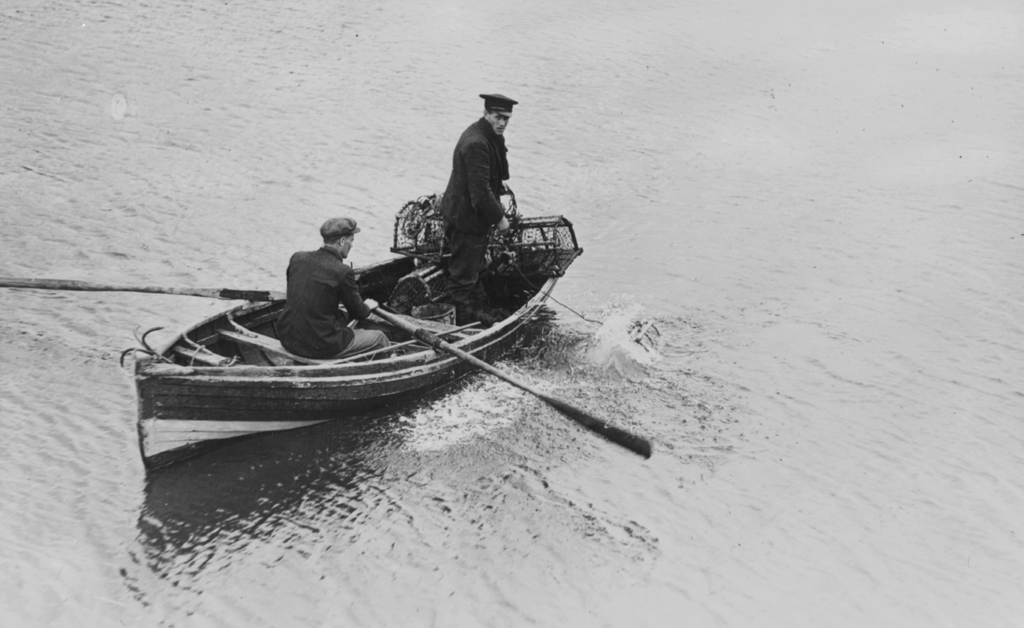
On a lobster boat in Bernera, Ross-shire, 1949 © National Museums Scotland, licenced by Scran.
Rowing Songs
Many Scottish communities in coastal areas and islands were dependent on the sea for their livelihoods and for travel to and from the mainland. Men rowing boats would sing choral songs which would match the stroke of the oars and help those rowing to forget their hardships, even in rough weather.
In the rowing song Iomaraibh Eutrom Hò Hò, sung by James MacDonald from the Isle of Skye in 1955, the chorus of the song asks the crew to pull the oars lightly.
Listen to Iomaraibh Eutrom Hò Hò on the Tobar an Dualchais website
Elsie Maclean is the Marketing Officer for Tobar an Dualchais/Kist o Riches, a project which has made over 39,000 sound recordings available online. In addition to songs, the project collects soundbites of folklore, stories, traditions, music and poetry. They were recorded all over Scotland and the earliest items date back to the 1930s.
For more information, visit: www.tobarandualchais.co.uk

